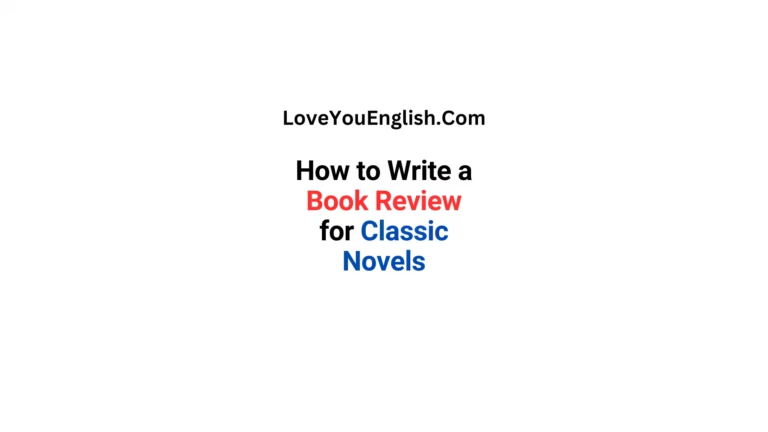English Literature’s Role in Global Storytelling
English literature has greatly influenced storytelling traditions worldwide. From old epics to modern novels, English writers have shaped how stories are told, how characters are created, and how plots evolve. Authors like Shakespeare and Jane Austen have touched audiences far beyond English-speaking countries with universal themes and innovative styles.
In this post, let’s explore how English literature has impacted storytelling globally.
1. Shakespeare’s Impact on Drama and Theater
William Shakespeare, considered one of the greatest English writers, changed drama forever. His plays, like Macbeth, Hamlet, and A Midsummer Night’s Dream, introduced complex characters and timeless themes such as love, betrayal, and ambition.
Shakespeare’s language also enriched everyday speech with phrases like “break the ice” and “heart of gold.” His works have been translated into countless languages and adapted to different cultures worldwide. For example, Hamlet has inspired Bollywood films and modern plays. His ability to capture human emotions makes his stories relatable even today.
2. The Rise of the Novel
The English novel emerged in the 17th and 18th centuries, with writers like Daniel Defoe (Robinson Crusoe), Samuel Richardson, and Henry Fielding. These novels introduced detailed storytelling about individual lives and struggles.
Jane Austen’s novels, such as Pride and Prejudice, influenced romantic storytelling across cultures, while Charles Dickens highlighted social issues in works like Great Expectations. The Brontë sisters brought Gothic themes into focus with novels like Jane Eyre and Wuthering Heights. These stories continue to inspire writers globally.
3. Colonial Influence on Literature
During British colonial rule, English storytelling spread to various parts of the world. Local authors combined English styles with their native traditions.
In India, Rabindranath Tagore blended English literary forms with Indian spirituality in Gitanjali. Similarly, R.K. Narayan’s Malgudi Days reflected Indian life through a British narrative style.
In Africa, writers like Chinua Achebe (Things Fall Apart) and Ngũgĩ wa Thiong’o used English storytelling techniques to explore their cultural identity and history. This fusion of styles created new storytelling genres.
4. Fantasy Literature’s Global Appeal
English fantasy literature has inspired readers and writers worldwide. J.R.R. Tolkien’s The Lord of the Rings and C.S. Lewis’s The Chronicles of Narnia introduced magical worlds, epic quests, and universal themes like courage and friendship.
Modern series like Harry Potter by J.K. Rowling have further popularized fantasy literature, captivating audiences across cultures and languages.
5. The Short Story’s Influence
Short stories became popular in 19th-century England. Writers like Oscar Wilde (The Happy Prince) and Edgar Allan Poe (The Tell-Tale Heart) used this form to explore human nature and emotions.
In India, R.K. Narayan and Ismat Chughtai wrote short stories influenced by English authors but rooted in their local culture. Today, short stories remain a global art form for addressing personal, social, and political themes.
6. Modern English Literature and Adaptations
Modern authors like George Orwell (1984) and Virginia Woolf (Mrs. Dalloway) explored themes of identity and politics, influencing writers worldwide. Many English novels, like The Great Gatsby and The Hunger Games, have inspired global adaptations in films and theater. These adaptations often incorporate cultural elements of the regions where they are produced.
7. Conclusion
English literature has deeply shaped storytelling traditions across the globe. Its universal themes, memorable characters, and innovative styles continue to inspire writers and storytellers everywhere. As cultural exchange grows, English literature will remain a cornerstone of global storytelling.
From Shakespeare to Harry Potter, the influence of English literature ensures that its stories will captivate audiences for generations to come.
More topics:
- The Importance of Tragedy in English Drama
- The Role of Religion in English Literary Classics
- How to Write a Book Review for Classic English Novels
- How to Build a Strong Foundation in English Literary Theory
- The Role of the Supernatural in English Literary Classics
- The Role of Letters and Diaries in English Literary Narratives
Resources:
- Oxford English Dictionary for Literary Language
https://www.oed.com - Literary Theory and Criticism
https://plato.stanford.edu/entries/literary-theory/ - Public Domain Classics and E-Texts
https://www.gutenberg.org







